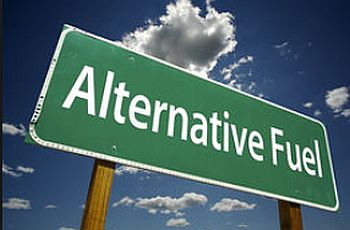
Adoption is growing in “record numbers”
By Mark Boada, Executive Editor
A study by a clean energy consulting firm has found that there is no significant loss of performance when surveyed commercial fleets convert from diesel and gasoline to most alternative sources of energy.
The 141-page report, published last month by the California consulting firm of Gladstone, Neandross & Associates, also asserts that the use of alternative fuels by fleets of medium- and heavy-duty vehicles is “at a critical inflection point where…adoption is expanding from the gradual uptake in niche applications over the past several decades to faster and broader adoption within the last few years.
The report, entitled “The State of Sustainable Fleets 2020,” says that although diesel and gasoline are likely to remain as the dominant choice of commercial fleets for some time, “fleets are now testing and purchasing sustainable vehicle technologies in record numbers.”
The firm received survey responses from 144 fleets, from November of last year through this January, and covered four types of alternative energy technologies: natural gas, propane, battery electric and hydrogen fuel cell electric vehicles. Fleets surveyed included urban delivery, utility trucks, municipal shuttles, garbage, school and transit buses, and short- and long-haul heavy-duty trucks.
Key findings
While the report is loaded with data points for each of the four alternative fuel technologies, its authors cited four key findings:
- 83 percent of surveyed fleets expect to increase their use of sustainable vehicle technologies and fuels, and 15 percent said they plan to keep it at the same level for the foreseeable future.
- All four alternative fuels are growing in terms of vehicle and fuel sales and investment.
- Many U.S. fleets are transitioning to clean vehicle technologies both to reduce total cost of ownership and to meet sustainability goals.
- Fleets confirm there is no material loss of performance when switching to renewable diesel, natural gas and electricity, and would use more when it is a cost-neutral and drop-in replacement.
Barriers to more widespread adoption, the study found are “the often-higher cost and challenges with procuring sufficient volumes to meet their needs.”
Fuel-specific findings
The report devotes a separate chapter on each of the four types of fuel-propelled vehicles. Highlights include:
Natural Gas Vehicles (NGVs) – The Use of natural gas by U.S. fleets over the last several years has increased 400 percent, with 85 percent of NGVs in use by heavy-duty trucks in urban goods delivery, refuse collection and public transit.
Liquid Propane Gas Vehicles (LPGVs) – While medium-duty LPGVs typically cost between 10 and 25 percent more than a typical gasoline- or diesel-fueled vehicle, fleets that install private fueling facilities average 38 percent in fuel costs over the traditional alternatives.
Battery Electric Vehicles (BEVs) – More than 2,000 BEVs are in use by medium- and heavy-duty fleets, and deliveries are estimated to double over the next two years. In addition, more than 90 percent of surveyed fleets that plan to use BEVs will install their own charging infrastructure and another third will install their own energy storage or generation capacity over the next 24 months.
As important benefits of BEVs, the report said that interviewed fleets consistently cite lower maintenance costs, higher driver satisfaction and fuel cost savings when charging is managed.
Hydrogen Fuel Cell Vehicles (FCEVs) – Although FCEVs are still in the demonstration and pre-commercial stage, the report found that fleets remain interested in them “as the technology provides a zero-emission pathway while offering excellent acceleration and efficiency, extended driving range and fueling times comparable to gasoline and diesel vehicles.” Only some 70 FCEVs are on U.S. roads, about 50 of which are in California with major being commercial transit buses.
To download the full report, click here.
The post Study: No ‘Material’ Loss of Performance with Most Alternative Fuels appeared first on Fleet Management Weekly.
from Fleet Management Weekly https://ift.tt/2GSxIXg



Sourced by Quik DMV - CADMV fleet registration services. Renew your registration online in only 10 minutes. No DMV visits, no lines, no phone mazes, and no appointments needed. Visit Quik, Click, Pay & Print your registration from home or any local print shop.





0 comments:
Post a Comment